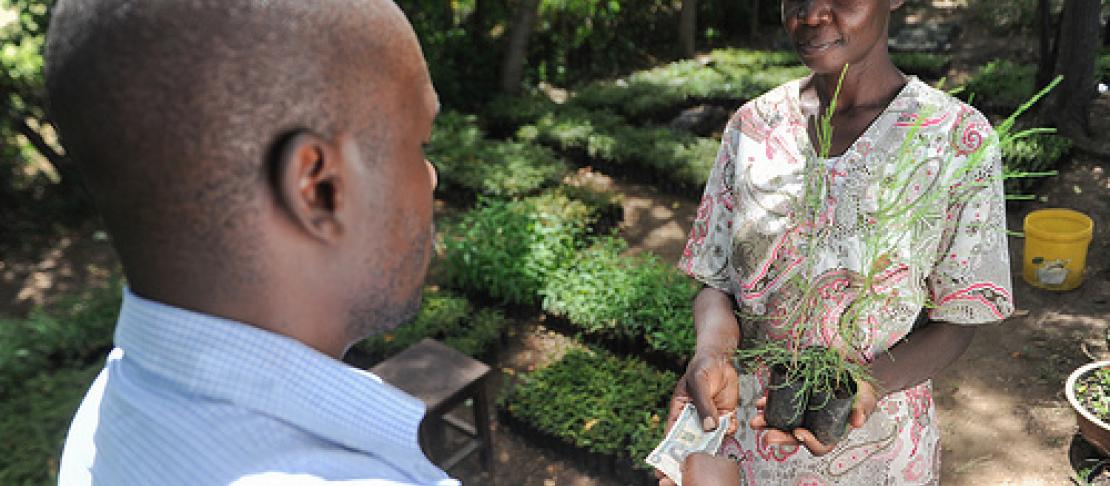Smart made even smarter: Gender addressed in new brief on climate smart agriculture

Livelihood- and climate focused agricultural practices help farmers to sustainably increase their farm productivity and build resilience to climate change, while contributing to mitigation. But how does this type of farming — commonly known as climate-smart agriculture or CSA — interact with gender in real-life communities?
In the newly released policy brief, Addressing Gender in Climate-Smart Smallholder Agriculture researchers from CARE International, the CGIAR Research Programme on Climate Change, Agriculture and Food Security (CCAFS) and the World Agroforestry Centre (ICRAF) share their insights on gender. The brief highlights the importance of a flexible learning approach in advancing gender equity goals and improving outcomes for farmers and projects.
The Sustainable Agriculture in a Changing Climate (SACC) project, on which the policy brief is based, has gleaned several important insights into gender and CSA:
- For both men and women, livelihood benefits such as enhanced incomes, access to credit, and fuelwood are key motivators to adopt sustainable practices.
- Social norms and intra-household decision-making and bargaining influence participation and benefits from agricultural projects.
- Achieving greater participation of women in projects needs a focus on social structure, social relations and women’s capacity to make their own decisions and act on them.
- Providing new spacesfor men and women to participate together in decision-making can be more beneficial than working with women and men as separate groups.
- Non-cash benefits, including improved household communication, new roles and responsibilities for women and improved community relationships, are valued highly by men and women alike.
The SACC project also highlighted just how dynamic and nuanced gender and social differences are within communities, a point echoed in a recent online learning event hosted by the FAO. In his presentation on ‘Gender and agroforestry – ownership of trees in the context of climate change’, David Edmunds, co-author of a recent pro-poor mitigation gender strategy, said gender dynamics vary depending on farmers’ socioeconomic conditions.
“…you can’t walk into a farm landscape and ask who owns this land and understand everything about the access and use rights… It differs among men and women, wealthy or poor farmers, older and younger people.”
Learn more by reading the whole story on ICRAF's blog.
Download and read the policy brief "Addressing Gender in Climate-Smart Smallholder Agriculture", by Quinn Bernier, Phil Franks, Patti Kristjanson, Henry Neufeldt, Agnes Otzelberger and Kristi Foster
CCAFS work on gender is never finished - Get the facts and latest insights:
Read a new, comprehensive story on gender activities from across the CGIAR: Bridging the gender gap in climate change



